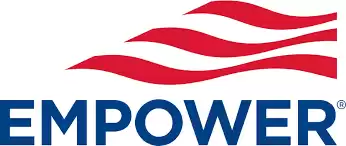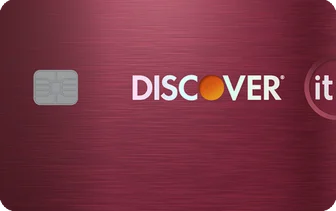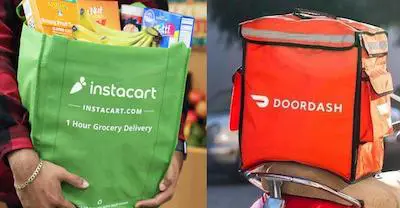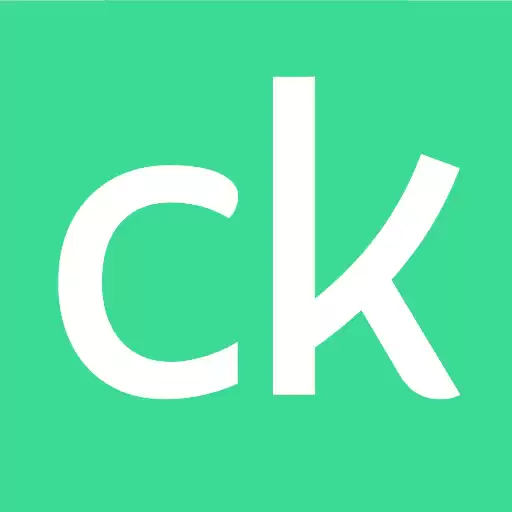Credit cards can be a blessing or a curse, it depends on how you use them. When used well, they can help you keep life ticking over smoothly and on time. Used poorly, and the debt can rack up when you're living paycheck to paycheck.
US-wide, credit card balances carried from month to month continue to inch up, reaching $420.22 billion in late 2018, according to NerdWallet’s annual analysis of U.S. household debt.
That’s an increase of about 5% over last year. The average U.S. household with credit card debt has an estimated $6,929 in revolving balances or balances carried from one month to the next, the analysis found.
What this means is, if you owe money on your credit cards, you’re certainly not alone, but that doesn’t mean you should be ignoring the debt even if you have no extra money.
Here's how to reach your debt-free goal.
How To Pay Off Credit Card Debt
Paying off your credit card debt can be overwhelming when you're broke. We'll show you how to pay off credit card debt and give you the right tools to stay out of debt. Here’s how to go about paying it off:
1. Create a budget
A budget will assist you in making better financial decisions and giving you an indication of how much money you can afford to devote to your debt each month.
Keep track of your expenses in writing rather than mentally; seeing the figures on paper allows you to see the bigger picture without depending on your memory.
You may use your budget to help you figure out where you can save money for paying off your debt.
Consider using free budgeting tools like Empower to get the job done.
Take control of your finances with Empower's free personal finance tools. Get access to wealth management services and free financial management tools.
2. Save a $1,000 emergency fund
If you're scared of getting rid of your credit cards since they serve as an emergency fund, consider establishing a real emergency fund as soon as possible.
Save $1,000 this month. Put it in savings as a safety net between you and life's unexpected occurrences.
If you don't believe us, just try it. It's better than a credit card, and you won't be charged interest if you pay in an emergency. Boom!
Related: How to Pay Off $5,000 in Credit Card Debt Quickly
3. Avalanche or snowball
It’s important you set goals around paying off your debt and stick to them. You’ll want to prioritize your debts and break them down into smaller, more manageable chunks to keep you sane.
The two most popular tactics to do this are the ‘debt avalanche’ and the ‘debt snowball’, and picking one of these (or something in between) is the best way to go.
The avalanche involves paying off your highest interest debts first and continuing down the chain until finishing with the smallest. This method will save you the most money as you are eliminating the highest interest first and avoiding a higher accumulated debt over time.
The snowball focuses on the other end and looks to pay the smallest debts first. The thinking here is that fully paying off the smallest balance will offer a psychological boost that will give you the motivation to continue paying off the rest of your debt.
Finally, the hybrid ‘debt blizzard’ method pays off the single smallest debt first to offer that mental boost before moving to ‘avalanche’ off the highest interest debts straight after.
Once you’ve picked your preferred icy metaphor you have a structured process to stick to and get working on your debt.
4. Redistribute the debt
There are two ways to shift your credit card debt that could help you.
The first is to take on a debt consolidation loan to pay off high-interest debt. Such a loan would pay off all your current debts and consolidate them into one single debt which you would then make regular repayments towards.
Sounds pretty good, but it’s not a decision to be taken lightly. You need to be sure you can keep up with repayments as a secured loan uses your house as an asset against the debt.
Alternatively, you can roll the balance onto a new, lower-interest balance transfer credit card to reduce the carrying costs of the debt. Transferring to a card with a lower APR (look for 0%) will release the pressure on you for the time being.
5. Ask your creditors for a lower interest rate
If you have a high interest rate, it's more difficult to repay your debt since a greater portion of your monthly payment goes toward interest.
Lowering your interest rate can help you pay off your debt faster by lowering the amount of money you have to pay back.
Your credit score and good payment history will help you negotiate for a lower interest rate.
If your credit card issuer is unwilling to negotiate, consider transferring your balance to a credit card with a lower interest rate. Taking advantage of a 0% balance transfer offer is even better.
The Discover it Credit Card offers 0% APT on balance transfers for 14 months, which can give you time and help you avoid paying interest on the debt.
- INTRO OFFER: Unlimited Cashback Match – only from Discover. Discover will automatically match all the cash back you’ve earned at the end of your first year! There’s no minimum spending or maximum rewards. You could turn $150 cash back into $300.
- Earn 5% cash back on everyday purchases at different places each quarter like Amazon.com, grocery stores, restaurants, gas stations and when you pay using PayPal, up to the quarterly maximum when you activate.
- Plus, earn unlimited 1% cash back on all other purchases - automatically.
- Redeem cash back in any amount, any time. Rewards never expire.
6. Curb Your Spending
You don’t need to close your credit accounts, but cutting or hiding your card will help you avoid the temptation of overspending. It’s worth enduring a few plainer months if it means you can rid yourself of debt, so have a think about making some adjustments around your lifestyle that will make a financial difference on the month.
It could be changing your daily commute to work or taking in a homemade lunch. It could just mean staying in and watching TV and missing a few nights out.
Once you’ve analyzed your lifestyle, sit down and create a monthly plan that incorporates your changes then see if you have some extra cash at the end of the month to help further pay off your debts.
7. Ways Ways to Earn Additional Income
If you're on a tight budget or would rather make more than spend less, search for ways to make extra money that you can utilize to pay down credit card debt.
You may sell items you don't want or need any longer, for example, which can quickly provide you money.
It's possible to earn money by renting out an unoccupied room, your automobile, or even your parking space when you're not using them through platforms like Airbnb, Turo and JustPark.
Make more money from home by tutoring online, freelancing on the side, or testing digital products on sites like Swagbucks.
You may also work part-time or set your own speed with a side business like as shopping for groceries on Instacart or delivering meals on DoorDash.
DoorDash provides more stable hourly pay but has lower earning potential. Instacart has higher earning potential but you must book your schedule in advance. Most gig workers sign up for both to maximize their earning potential.
Calculate how much extra money you'll need to pay off your debt; taking on too much work above and beyond your existing obligations might lead to burnout.
Alternatively, you can ask for a raise at your job once you've investigated the market in your industry and demonstrated how you've added value to the company.
8. Pay on time and avoid fees
Late payments impede your debt reduction progress.
You'll have to double up on payments next month, as well as pay a late fee—money that may have decreased your balance.
Furthermore, two consecutive late credit card payments will trigger the penalty rate, which will make it more difficult to pay off your debt.
It's crucial that you pay at least the minimum payment required by your credit card account.
Late or skipped payments can damage your FICO® score, which will increase the cost of future loans and may even cause lenders to reject future loan applications.
9. Consider consumer credit counseling
A credit counseling agency can help you develop a budget that includes monthly debt payments.
The credit counselor will attempt to negotiate a debt management plan (DMP) with your lenders if you can't afford to make debt payments.
You may make just one monthly payment to your credit counselor, who will then distribute payments to each of your creditors.
The DMP generally has lower monthly installments owed to your creditors, and you could receive a lower payment from them.
If you have a more difficult or complicated financial position, you may want to explore the possibility of utilizing a debt relief program.
Debt settlement is a last resort because it entails stopping payments and working with a company that holds the money in escrow while negotiating with your creditors to reach an agreement, which can take up to four years. Withholding payments from your creditors may severely harm your credit score.
10. Cut the cord
Finally, whilst you’re trying to pay off your old credit debt it’s probably best to not rack up anymore, so make a conscious effort to stop using your credit cards during this period.
Of course, there may be an emergency payment that needs to be made, but your credit card should literally be ‘emergencies only’ whilst you figure out a solution to your debt.
It’s a difficult road to negotiate, but a structured and disciplined approach will see you on the road to being debt-free and improve your credit rating.
Once you’ve recovered, you can reintroduce credit cards alongside your other funding options to carefully manage your personal finances from thereon out.
Understand How to Use Credit Responsibly
It's crucial to keep good habits in place after you've paid your debt off so you don't get yourself into more debt.
You don't have to go cold turkey on credit cards unless you're serious about responsibly using them; in fact, one of the most well-known strategies for improving your credit score is to make regular purchases with a credit card and pay them off right away.
Make sure to stick to the budget you established once you've paid off your credit card debt. You may start utilizing credit cards again once you're ready and confident in your ability to manage your debt responsibly.
If you finance something using a card, make a strategy to pay it off in a reasonable amount of time. Credit cards should be used purposefully and wisely rather than as a reflex.
It's also critical to keep an eye on your credit score and credit report, which includes data that contributes to it.
Regularly monitoring your credit allows you to detect any drops in your rating, which might be caused by a missed or late bill payment or an increase in your account balance.
Understanding the factors that contribute to excellent credit may help you remember why you should practice those principles.
Your credit score should be free. And now they are. Check your scores anytime, anywhere, and never pay for it. Save smart with Credit Karma.
The Importance of Debt Reduction
I know it's tough when you have rent due or your mortgage payment is coming up. Your credit cards with the highest interest rates keep piling up and credit card companies aren't helping you out, just keep on sending monthly bills.
Your debt relief options seem out of reach and a repayment plan is hard to think of.
But that doesn't have to be the case.
Even if you don't have a lot of money in your bank account, paying off credit card debt is a smart objective.
Having a debt payoff strategy is crucial and monitoring your spending habits should be your focus.
Whether you choose debt avalanche methods or the debt snowball method, your goal is paying off that credit card debt.
You'll be in a position to achieve other important goals, such as purchasing a house, if you have less debt.
When it comes to debt reduction, eliminating it takes hard work, patience, and careful planning, especially when funds are limited.
Select the strategy that works best for you depending on your situation, keep an upbeat attitude and know that debt freedom will arrive with time and hard work.











